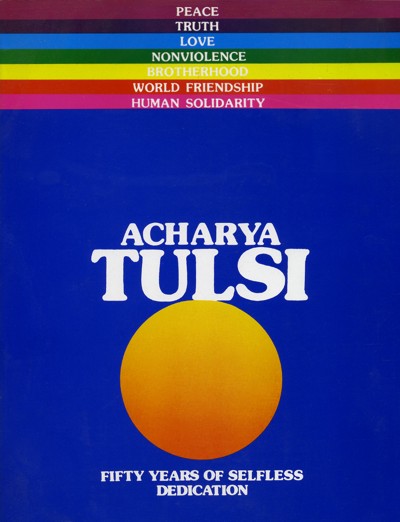Question:
Time and again you mention nonviolent opposition in your religious discourses. Is it possible to establish its value as a recognized mode in the context of the present national upheaval, with the people getting more and more inclined towards violence?
Answer:
In my view the voice of nonviolence assumes much greater importance in these circumstances. Water is important at all times but it becomes more so at the time of a famine. Similarly, peace becomes more valuable when a war is being waged. It is natural then to establish the value of nonviolence while violence is rampant.
The issue now does not relate to the value of nonviolence but to the assigning of a proper status to it. I think it is a testing time for it - a time for experimenting with it. Here is a golden opportunity for it to prove itself, and if it succeeds in solving the present problems its exalted status will be automatically established. If it fails it will lose all its attraction. In the context of India's independence Gandhiji gave central importance to nonviolence As a result India became free without shedding a drop of blood. At the same time people also developed more faith in nonviolence But later on it was dislodged from its central position and relegated to the background as a mere policy. It is for this reason that it did not emerge in its full glory. People mistook the weakness in the policy as the weakness of nonviolence. This led to a gradual decline in people's faith in the power of nonviolence.
However, the fact remains that violence even if in its extreme form can never establish itself as a value because it does not reflect our natural state. Storms and tempests can affect the people only up to a limit. They cannot be permanent, nor can they command an important place in their lives.
As far as I can see the greatest obstacle in the way of nonviolence being established as a value is the lack of strong faith in it. I see this lack of faith not in the ordinary people but in those who claim to believe in it. Therefore, before one talks of nonviolent opposition it is necessary to create an unshakable faith in nonviolence, in the believers of nonviolence. Even so I do not have the slightest doubt about the ultimate possibility of establishing nonviolence as a value.
Question:
What will be the shape of a nonviolent opposition?
Answer:
Any programme of nonviolent opposition must be preceded by proper preparation in which I will give top priority to training in nonviolence. In the absence of this training the question of having faith in and assigning a proper status to nonviolence does not arise.
At all times both violent and nonviolent means have been used for solving problems. The question here, however, is of tradition. Both Russia and America have the ability to wage a nuclear war. Even then they make efforts to avoid it. Why? Simply because waging a nuclear war will give birth to a tradition whose future will be bleak.
Nonviolence is in itself a healthy concept. But it cannot become a tradition until it is successfully tested as an experiment. As a preparation for the test experiment training in nonviolence is of fundamental importance.
We will also have to determine some basic factors for considering nonviolent opposition. For this it is first of all necessary to know the prevailing circumstances and spatial and temporal factors. The work cannot make satisfactory progress unless it is first decided as to what will be undertaken first and in what form in the light of the existing conditions. Gandhiji gave many turns to his Satyagrah (insistence on truth or passive resistance offered to uphold truth) Movement. At times he would slow down the movement or even suspend it. This was done only in order to preserve the balance between spatial and temporal factors.
Further, in arriving at any crucial decision it is necessary for the leader that he act both with proper discrimination and objectivity. Objectivity and humility are the pillars of nonviolent opposition. Any preconceptions and show of egoism will be inexcusable. Talking of opposition while at the same time being partisan is itself a form of violence.
Finally, nonviolent opposition demands absolute purity of viewpoint and attitude. One has to eschew the temptation to have goodwill for one party and ill-will for another, as also the tendency towards upholding one's own position at someone else's cost.
 Acharya Tulsi
Acharya Tulsi
